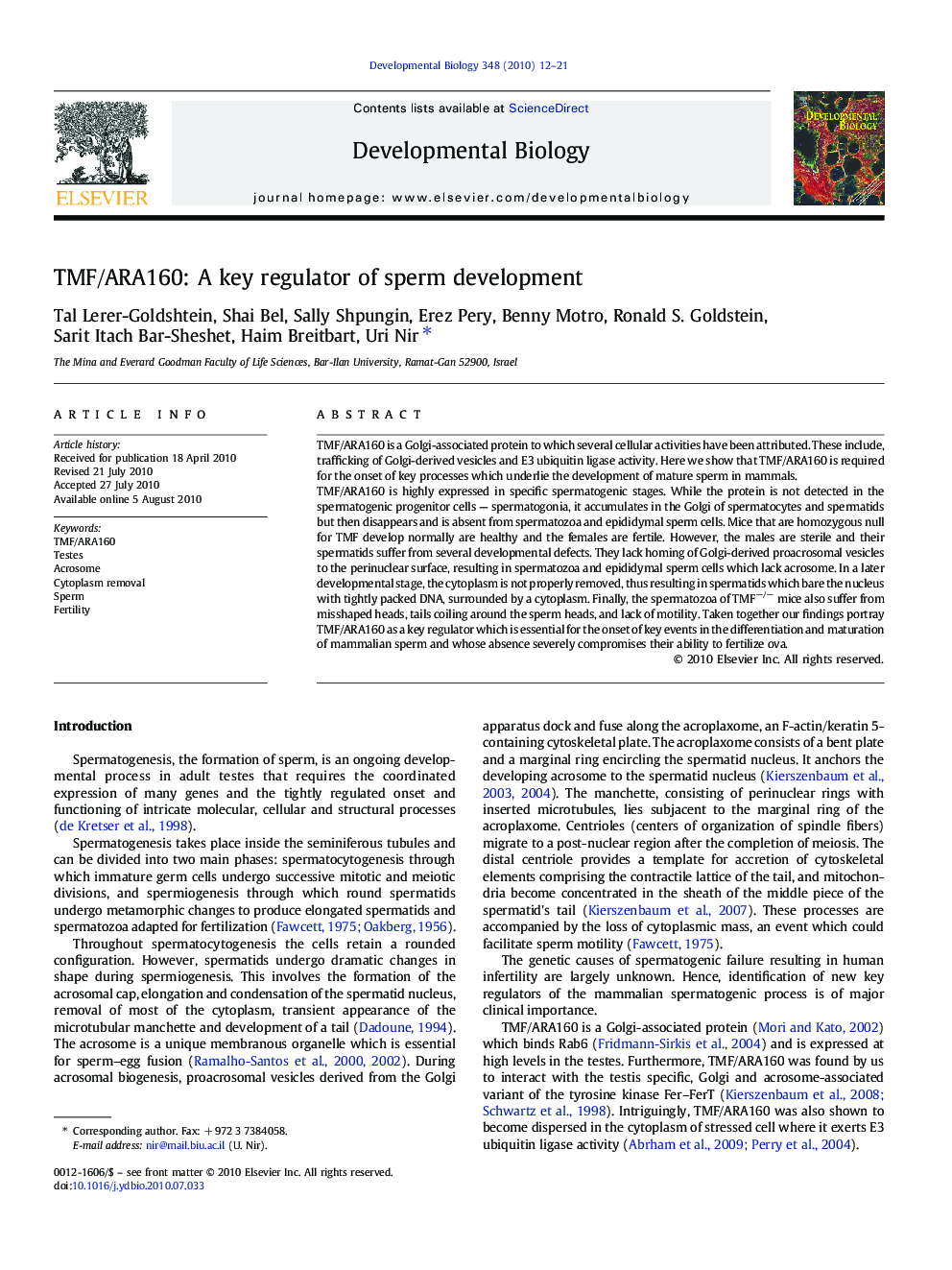| Article ID | Journal | Published Year | Pages | File Type |
|---|---|---|---|---|
| 10933011 | Developmental Biology | 2010 | 10 Pages |
Abstract
TMF/ARA160 is highly expressed in specific spermatogenic stages. While the protein is not detected in the spermatogenic progenitor cells - spermatogonia, it accumulates in the Golgi of spermatocytes and spermatids but then disappears and is absent from spermatozoa and epididymal sperm cells. Mice that are homozygous null for TMF develop normally are healthy and the females are fertile. However, the males are sterile and their spermatids suffer from several developmental defects. They lack homing of Golgi-derived proacrosomal vesicles to the perinuclear surface, resulting in spermatozoa and epididymal sperm cells which lack acrosome. In a later developmental stage, the cytoplasm is not properly removed, thus resulting in spermatids which bare the nucleus with tightly packed DNA, surrounded by a cytoplasm. Finally, the spermatozoa of TMFâ/â mice also suffer from misshaped heads, tails coiling around the sperm heads, and lack of motility. Taken together our findings portray TMF/ARA160 as a key regulator which is essential for the onset of key events in the differentiation and maturation of mammalian sperm and whose absence severely compromises their ability to fertilize ova.
Related Topics
Life Sciences
Biochemistry, Genetics and Molecular Biology
Cell Biology
Authors
Tal Lerer-Goldshtein, Shai Bel, Sally Shpungin, Erez Pery, Benny Motro, Ronald S. Goldstein, Sarit Itach Bar-Sheshet, Haim Breitbart, Uri Nir,
